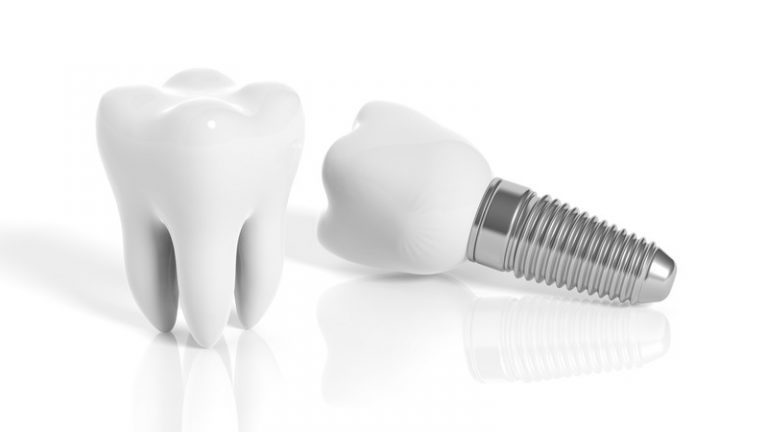Looking for a more holistic alternative to traditional titanium dental implants? Dr. Puckett gives you the option of Zirconia implants — the only fully ceramic system on the market. Let’s look at the advantages and considerations of this approach to oral surgery.
What are Zirconia Implants?
Dental implants, of course, are artificial teeth that are surgically attached to your jawbone, becoming just as functional as your natural teeth. Unlike dentures, dental implants are never removed. People won’t even know it’s not your original tooth. Dental implants are the ideal remedy for tooth loss.
Since the 1960s, dental implants have been traditionally made out of titanium — a natural metal. They have long term success rates of 94 to 97% and are a great option for most.
Some people, however, are concerned about the amount of metal put into their body. Zirconia implants are a non-metal alternative to titanium. Zirconia is a ceramic material that is white in color. It consists of the elements Zirconium and Oxygen (1 atom of Zirconium & 2 atoms of Oxygen). It is not considered a traditional metal due to its metal oxide structure (ZrO2).
The beauty of Zirconia implants is they have a soft-tissue response, better biocompatibility, and in general look better and more natural than titanium implants. Zirconia implants have a natural tooth color. Whereas titanium implants carry a risk of tissue discoloration or grayness showing around the gums, you won’t have this problem with Zirconia implants.
Do You Have a Metal Allergy?
Some people are allergic to metal. Zirconia implants offer a safer yet effective alternative. While titanium is the primary metal used in traditional implants, other metals may also be present, including Iron, Manganese, Chromium, Tin, Vanadium, Molybdenum, Zirconium, Niobium, Zinc, Tungsten, and Nickel. If you are one of the rare people that suffers from metal allergies, this can be a problem for you.
Other Advantages to Zirconia Dental Implants
Zirconia dental implants generally have a lower risk of infection and plaque, limiting the risk of gum disease and tooth decay. They also are more resistant to corrosion than traditional dental implants. Since they contain less metal, there is no concern of galvanic or battery effects with Zirconia implants. They are a poor electrical or thermal conductor.
Zirconia implants also tend to be more comfortable for the user. There is less risk of infection. They can also be immediately planted after a tooth extraction, so there’s less healing time required.
Considerations
Zirconia dental implants have only been around since 1986. Technically, we don’t know how they will do long term, or at least more than 35 years down the road. Many patients have used these implants successfully and with good effects, but when it comes to the long term picture, we just don’t know.
It’s also important to keep in mind that Zirconia implants tend to be more brittle and prone to fraction when compared to titanium implants. They have a higher risk of fracture and complications.
Zirconia implants also cost more than traditional titanium implants. The cost for a traditional titanium implant is between $300 to $500. Zirconia implants can run anywhere from $500 to $600. Many consider the advantages well worth the cost, however.








